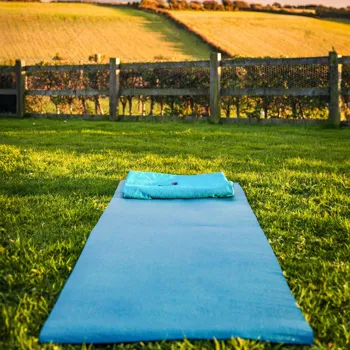Discover the key to graceful aging: Why staying active is vital for your well-being. Read more to unlock the secrets of a healthier, happier future
Aging is a natural and inevitable part of life, like season
changing from summer to monsoon. But how we age — that's something we have some control over, bhai! Staying active isn't just about looking good, it's about feeling good and living a full, healthy life, especially as we grow older.
Many of us think, "Arrey, I'm getting old, time to take rest". However, studies show that physical activity can significantly improve the quality of our lives as we age. Think of it as investing in your future self, a really, really precious self!
importance of staying active for graceful aging
This article explores why staying active is so essential for aging gracefully.
Aging brings changes; staying active maintains strength, flexibility, and heart health
As we age, our bodies naturally undergo changes. Muscle mass decreases, bone density reduces, and our metabolism slows down. These changes can lead to weakness, frailty, and an increased risk of falls and injuries. But don't worry, all is not lost! Staying active helps to counteract these effects.
Regular exercise, even moderate activities like walking, gardening, or dancing, can help maintain muscle mass and strength. This means you will be able to carry groceries, climb stairs, and enjoy your daily activities without feeling tired.
Weight lifting is also a plus point so you can lift some weight in the gym. No need to lift the whole library, just a few will do. With maintaining muscle and strength, flexibility is equally important. Imagine trying to tie your shoelaces and not being able to reach your feet!
Stretching exercises like yoga or tai chi can improve flexibility and balance, which reduces the risk of falls and injuries. In addition to this, staying active is good for your heart.
Daily activities like brisk walking, jogging helps in proper blood rotation within the whole body and prevents heart attacks when you are aging.
Regular physical activity boosts brain health, cognition, and mood
Staying active isn't just about physical health; it's also incredibly important for mental health and cognitive function. As we age, the risk of cognitive decline increases, and conditions like dementia and Alzheimer's disease become more common.
However, research has shown that regular physical activity can help to protect against cognitive decline and may even improve cognitive function. A recent study had some experts examine the brain.
They found out that exercise promotes blood flow to the brain, which means that brain will get nutrients. So, there's nothing to worry about. Exercise helps in stimulating the growth of new brain cells and improves the connections between existing brain cells.
This can lead to improvements in memory, attention, and overall cognitive performance. Staying active also releases endorphins, which have mood-boosting effects and can help to reduce stress, anxiety, and depression.
So next time you feel down in the dumps, ditch the chai and head out for a brisk walk! It might be just what you need to lift your spirits.
Exercise reduces stress for better sleep
One more thing is sleep. When you exercise properly, automatically stress reduces and you get a good night's sleep.

Staying active prevents chronic diseases as we age
One of the biggest benefits of staying active as we age is its ability to prevent and manage chronic diseases.
Conditions like heart disease, diabetes, arthritis, and osteoporosis are more common as we get older, but regular physical activity can significantly reduce the risk of developing these conditions.
Exercise helps to improve cardiovascular health, lower blood pressure, manage blood sugar levels, and strengthen bones and joints. For individuals who already have chronic diseases, staying active can help to manage symptoms, improve quality of life, and reduce the need for medications.
For example, exercise can help reduce pain and improve mobility in people with arthritis, and it can help to control blood sugar levels in people with diabetes. It is important to talk to your doctor before starting a new exercise program, especially if you have any underlying health conditions.
They can help you to develop a safe and effective exercise plan that is tailored to your individual needs and abilities. I have seen many old people doing yoga in the parks to minimize the chronic diseases. It helps them to get better both mentally and physically.
Staying active helps combat loneliness by engaging socially
Staying active isn't just about individual health; it's also about maintaining social connections and staying engaged with the world around us. As we age, it's common for social circles to shrink, and feelings of loneliness and isolation can increase.
But participating in group exercise classes, sports, or other physical activities can provide opportunities to socialize, meet new people, and build meaningful relationships.
Joining a walking group, volunteering at a local park, or taking a dance class can all be great ways to stay active and connected. Social interaction is incredibly important for mental and emotional well-being, and it can help to combat feelings of loneliness and isolation.
It also provides opportunities for learning, sharing experiences, and supporting others. Staying engaged with the community can also help to maintain a sense of purpose and meaning in life, which is essential for successful aging. Staying inside the house all day is not going to help the body.
Instead, going to park or community clubs will give you new friends so you never feel lonely.
Regular exercise improves sleep quality and energy levels
As we age, many people experience changes in their sleep patterns, and insomnia becomes more common. Poor sleep quality can lead to fatigue, irritability, and a decline in cognitive function. However, regular physical activity can help to improve sleep quality and increase energy levels.

Exercise helps to regulate the body's natural sleep-wake cycle, making it easier to fall asleep and stay asleep. It also helps to reduce stress and anxiety, which can interfere with sleep. In addition to improving sleep, staying active can also increase energy levels.
Exercise helps to improve cardiovascular health and increase the efficiency of the body's energy production processes. This can lead to a feeling of increased vitality and reduced fatigue. However, it's important to avoid exercising too close to bedtime, as this can interfere with sleep.
Aim to finish your workout at least a few hours before going to bed.
Stay active as you age by making exercise a habit with enjoyable activities
The key to successfully staying active as we age is to make exercise a habit and find activities that you enjoy. It's not about forcing yourself to do exercises you hate, but about finding activities that you look forward to and that fit into your lifestyle. Start by setting small, achievable goals.
For example, aim to walk for 30 minutes most days of the week. As you become more comfortable, you can gradually increase the intensity and duration of your workouts. Find a variety of activities that you enjoy to keep things interesting.
Try different types of exercise, such as walking, swimming, cycling, dancing, yoga, or tai chi. Experiment with different classes, groups, and locations to find what works best for you. Don't be afraid to try new things and to modify activities to fit your individual needs and abilities.
Listen to your body and take rest days when you need them. Remember, it's not about perfection, but about making exercise a regular part of your life. By staying active and taking care of your health, you can age gracefully and enjoy a long, healthy, and fulfilling life.
Take it from me, your body is your temple. Taking care of it is your responsibility so you can enjoy life peacefully.
AI Generated Content. Glance/InMobi shall have no liability for the content
















